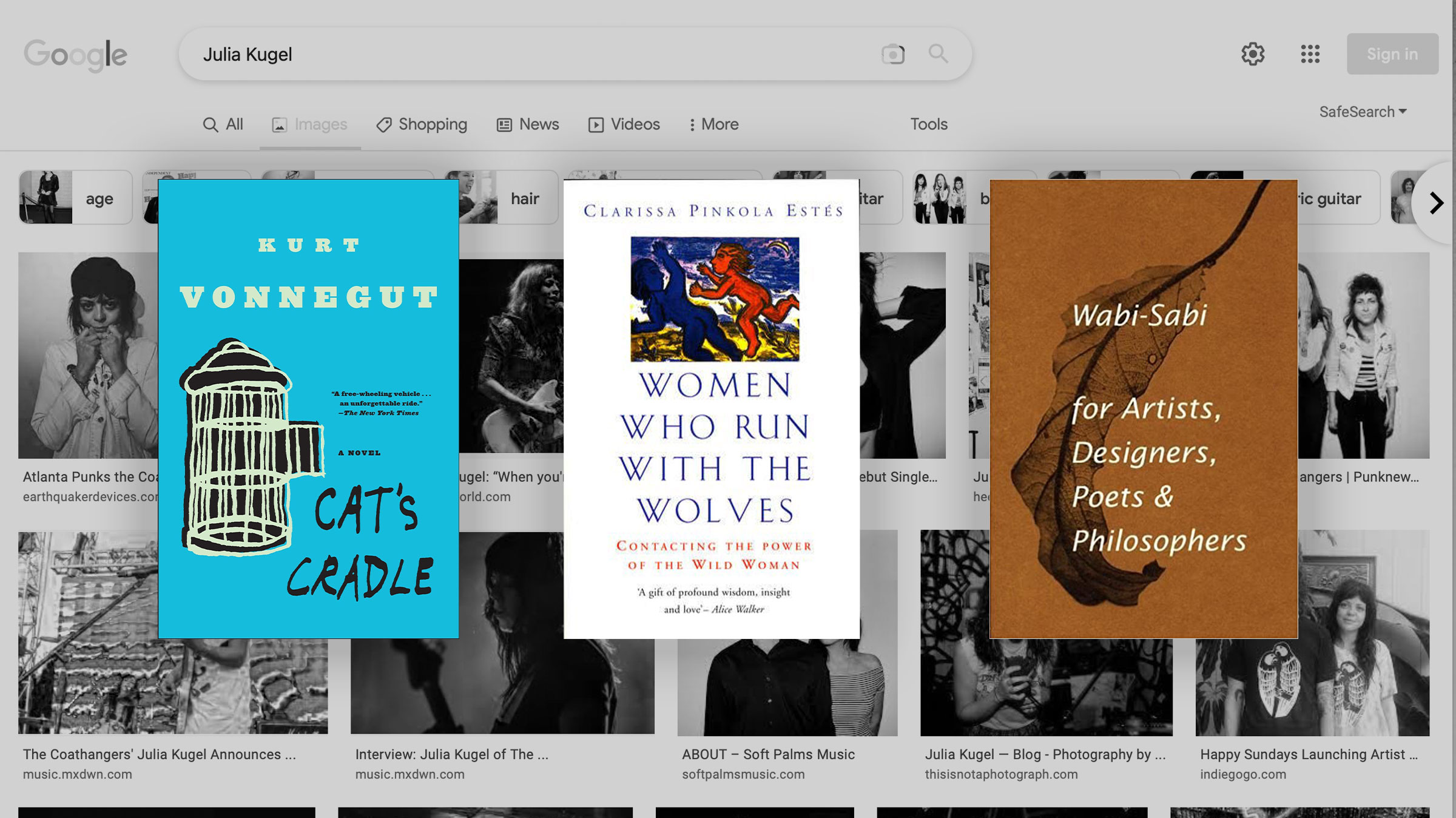The artist shares 4 texts for escaping to other realities, and finding peace in her own
Just as strong as the desire to make a singular name for oneself is the fear of it, and with it, the urge to tie your name to those of collaborators (as sharing credit promises the ability to blame others if all fails). This is what makes the act of going solo one of great courage—and the Coathangers’ Julia Kugel jumped headfirst into that icy pool, without any toe-dipping hesitation. Her debut record as Julia, Julia sees the artist not only taking lone credit for Derealization, but also playing nearly all the featured instruments, and taking her first stab at sound engineering.
Such experiments require courage, something that is not a natural impulse for all. For Kugel, it often manifests from literary explorations. “I like to take screen breaks and read throughout the day,” the artist shares. “I will disappear into my bedroom and escape into other realities, which in turn help me understand my own reality—with all its nuances and contradictions.”
Ahead of her album’s release on September 30, Kugel shares with Document a list of books that she keeps by her bedside: “Each one helps me remember to laugh, relax, strive for greatness, and be wild at heart.”
Cat’s Cradle by Kurt Vonnegut
“Nobody nails the absurd comedy of life better than Vonnegut in Cat’s Cradle. When I get overwhelmed by the horrors of modern life, I turn to this book to remind myself to laugh amid the chaos. The novel is basically about a man whose research on the atom bomb takes him to a destitute, colonized island. It touches on every aspect of modern culture with an irreverent and untethered viewpoint that helps me focus on the bigger picture. I have read this book twice already this year. I often whisper Busy busy, busy to myself when I notice that I am getting worked up about something that is out of my control.”
Wabi-Sabi for Artists, Designers, Poets & Philosophers by Leonard Koren
“‘Wabi-sabi is a beauty of things imperfect, impermanent, and incomplete,’ starts the book that changed my perspective on everything. Wabi-sabi is about realizing that everything is perfect in its imperfection and impermanence, and applying that principle to the art of living. This idea of celebrating blemishes has been instrumental in my artistic journey. Reading passages of this book when I am stuck on a project helps me tune in to the purity of creation. I am a notoriously perfection-driven Virgo, so the ideas presented in the book help me enjoy the process more. I consciously applied wabi-sabi principles to the new record, and it was very freeing!”
Peak: Secrets From the New Science of Expertise by Anders Ericsson and Robert Pool
“I happened to sit next to Anders Ericsson on a flight and we discussed what makes people exceptional at their profession. He was on his way to interview a groundbreaking heart surgeon. He told me that the science was showing that it’s mostly practice and good mentorship that help people excel. I got his book years later, and refer to it when I need some motivation to work on myself. The book contains interviews and stories from some of the greatest athletes and scientific minds. This book is a fascinating study in human achievement and reminds me to work harder. There are no shortcuts—you have to do the work to get the result.”
Women Who Run With Wolves by Clarissa Pinkola Esteés
“I was just gifted this book for my birthday, so I am at the beginning of my journey into the wonderland created by Dr. Estés—but already I am fascinated by its candor. It contains stories, fables, and myths of ‘wild women,’ and explores what it means to be connected to the feminine in nature and in art. It is natural and mystical and everything I need to remember when I long to give myself space and autonomy. Treading along the pages of this book makes me want to run in the forest, collect crystals, and listen to my intuition. It helps me remember to trust my wild heart.”



















